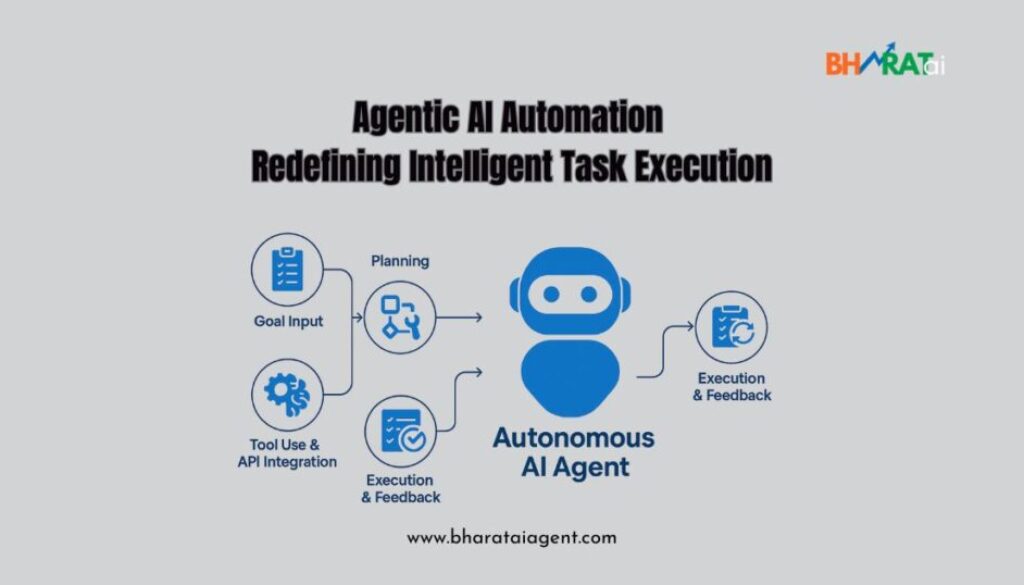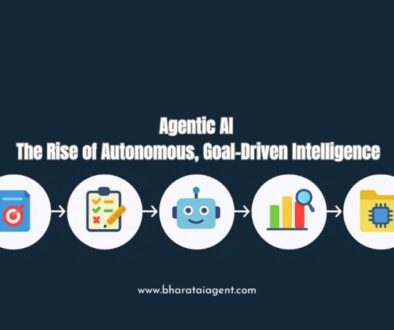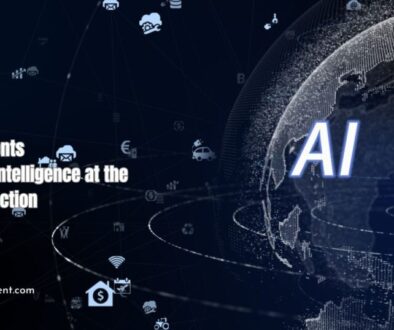Agentic AI Automation in 2025: Redefining Intelligent Task Execution
Agentic AI Automation represents a groundbreaking leap in artificial intelligence—shifting from traditional, task-based automation to autonomous, intelligent systems capable of executing complex workflows without constant human intervention. These AI agents are not just reactive tools; they are goal-driven digital collaborators that can plan, decide, act, and learn across systems.
What is Agentic AI Automation?
Agentic AI Automation refers to the use of autonomous AI agents that are capable of independently executing multi-step tasks, workflows, or operations based on defined goals, using reasoning, tool integration, memory, and feedback loops.
Unlike rule-based automation or static workflows, agentic systems:
-
✅ Understand objectives, not just instructions
-
✅ Break tasks into subtasks and prioritize them
-
✅ Choose tools and APIs required for execution
-
✅ Adjust actions based on feedback or results
-
✅ Collaborate with other agents or systems
In essence, Agentic AI automates not just the what but also the how of work.
How Agentic AI Automation Works (2025)
🧠 Step-by-Step Process:
-
Goal Input
Example: “Research top trends in renewable energy and generate a LinkedIn post.” -
Planning
The AI agent devises a multi-step strategy: Search → Filter sources → Summarize → Draft content → Format → Schedule. -
Tool Use & API Integration
It uses tools (e.g., Perplexity, Google Search API, Canva, Notion API, Buffer API) to gather, generate, and publish. -
Execution & Feedback
Executes the task, tracks performance, and adjusts strategies accordingly. -
Memory Logging
Updates internal memory for continuous learning and contextual awareness in future tasks.
Agentic AI vs. Traditional Automation
| Feature | Traditional Automation | Agentic AI Automation |
|---|---|---|
| Instructions Needed | Manual, step-by-step | Goal-based only |
| Task Flexibility | Fixed workflows | Adaptive, self-correcting |
| Tool Use | Pre-defined integrations | Dynamic tool/API selection |
| Intelligence | Rule-driven | AI-driven reasoning + decision-making |
| Feedback Loop | Manual updates | Self-learning and memory retention |
Real-World Applications of Agentic AI Automation
🧑💼 Sales & CRM
-
Agents source leads, qualify them via AI-enriched profiles, send personalized outreach, and book meetings automatically.
📰 Content Marketing
-
End-to-end content generation: topic research → drafting → editing → scheduling → performance tracking.
📊 Data Operations
-
Agents pull data from databases or APIs, generate summaries, detect anomalies, and auto-report insights.
🧾 Back Office & Admin
-
Expense report handling, calendar coordination, invoice generation, and document processing—fully automated.
🛒 E-commerce & Customer Service
-
Product updates, order tracking, FAQs, returns, and chatbot escalation handled by AI agents working across systems.
Popular Agentic AI Platforms (2025)
-
OpenAI Assistants API + GPT-4 Turbo
-
AutoGPT + BabyAGI (v2.0)
-
LangChain Agents & Memory Toolkit
-
Cognosys + CrewAI (Multi-agent orchestration)
-
Make.com + Zapier AI with autonomous triggers
-
Meta’s LLaMA Agents with ReAct Planning
Benefits of Agentic AI Automation
✅ End-to-End Task Completion
No more stitching tools together manually—agents run entire workflows autonomously.
✅ Reduced Human Oversight
Agents take initiative, solve problems, and adapt without waiting for approvals.
✅ Time and Cost Efficiency
Replaces repetitive work, reduces reliance on large teams, and accelerates time-to-output.
✅ Consistency and Quality
Standardizes outputs based on previous performance and feedback logs.
✅ Scalable Workflows
Hundreds of agents can run parallel tasks across departments, scaling operations effortlessly.
Use Cases by Industry
| Industry | Agentic AI Automation Examples |
|---|---|
| Healthcare | Intake automation, EMR updates, patient scheduling |
| Finance | Report generation, reconciliation, market research |
| Education | Course content creation, student queries, grading assistance |
| Real Estate | Lead follow-up, property listings, inquiry handling |
| Consulting | Client research, strategy documentation, contract prep |
| Retail | Inventory sync, promotion rollouts, chatbot escalation |
Challenges & Ethical Considerations
🔒 Access Control & Security
Agents must not overreach their authority—fine-grained permissions and audit logs are essential.
🧠 Error Management
Autonomous agents need clear boundaries and fallback mechanisms to avoid incorrect decisions.
⚠️ Over-Automation
Some tasks (e.g., legal approvals, emotional support) still require human oversight.
🔍 Explainability & Trust
Businesses must ensure that agent actions are trackable, explainable, and align with brand values.
Agentic AI Automation: Future Trends
-
🔁 Auto-Retraining Agents: Self-improving agents based on success/failure patterns and new data.
-
🧬 Persona-Driven Agents: Specialized agents for roles like “Legal Analyst,” “Sales Rep,” or “Content Editor.”
-
🔗 Cross-Agent Collaboration: Multi-agent systems managing different workflows in coordinated fashion.
-
🌐 Plug-and-Play AI Employees: Agents deployed like SaaS subscriptions to handle functional workloads instantly.
FAQs: Agentic AI Automation
Q1: What is Agentic AI Automation?
It’s the use of AI agents that autonomously manage entire workflows—understanding goals, planning tasks, and executing them across tools and systems.
Q2: How is this different from RPA (Robotic Process Automation)?
RPA follows static rules. Agentic AI thinks, reasons, and adapts its actions based on the situation, tools, and goals—much like a virtual employee.
Q3: Do I need coding skills to implement this?
Not necessarily. Many agentic automation platforms now support low-code or no-code interfaces with drag-and-drop functionality.
Q4: Is it secure to let AI agents access business tools?
Yes—with the right access controls, sandboxing, logging, and role-based permissions, agents can be deployed securely.
Q5: Can small businesses benefit from this technology?
Absolutely. Startups and SMBs are using agentic workflows to reduce hiring costs, speed up delivery, and manage operations with minimal staff.
Conclusion
Agentic AI Automation is transforming business operations in 2025 by enabling intelligent, scalable, and fully autonomous execution of complex workflows. Whether you’re a solo creator or a large enterprise, embracing this next-gen automation is key to staying competitive in a world driven by smart, proactive technology
#AgenticAI #AIWorkflows #AI2025 #AutonomousAgents #GPT4Turbo #LangChain #AIProductivity #DigitalWorkers #WorkflowAutomation #MultiAgentSystems
Agentic AI Automation 2025
Autonomous AI workflows
AI agents for task execution
Goal-based AI agents
Multi-step AI automation
LangChain agents
GPT-4 Assistants API
AI-driven business automation
AI agents vs RPA
AI work automation tools
What is agentic AI automation
AI that completes workflows
AI for sales and content automation
Low-code AI workflow builders
Benefits of autonomous AI agents
Tools for AI workflow orchestration
Smart task automation using AI
LangChain and OpenAI agents
End-to-end AI execution
Scalable AI-driven operations




